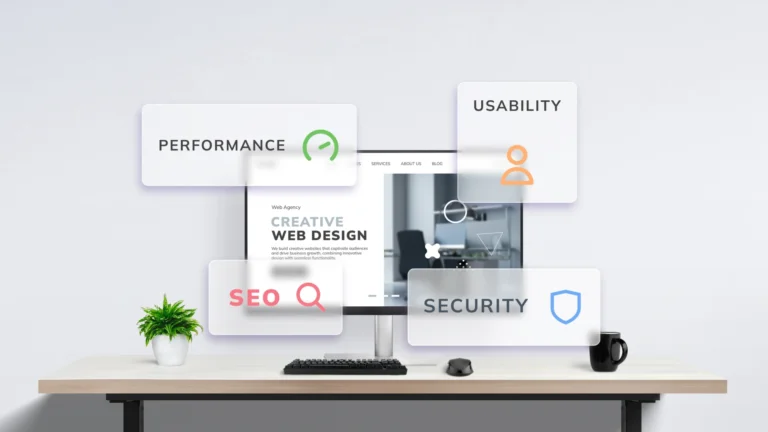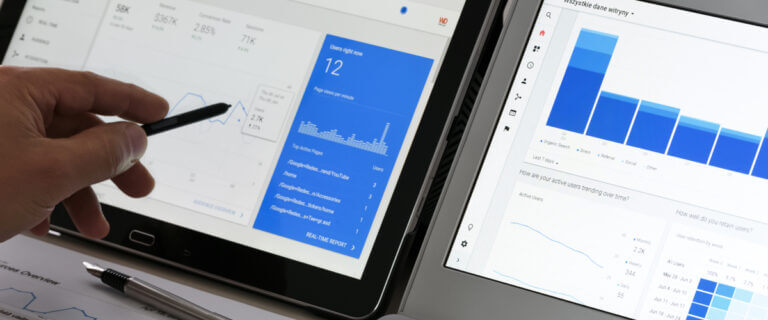Today, businesses across various industries are tapping into the power of AI. AI can help with decision making, speed up content generation, and supercharge your customer support — if you use it right.
If you’re an entrepreneur, you need to master AI to stay competitive in your niche. The real-life examples we mention below can give you some ideas on how to use AI in business.
AI in action: Industry-specific use cases
You may think, “AI can do some pretty cool stuff, but how do I apply it to my business?” Discover how leading companies already use AI to streamline processes, serve customers, save money, and boost sales.
Customer service
AI can supercharge customer service by whizzing through common questions and payment or refund processes. Of course, you’ll still need human service representatives to handle complex situations, but delegating the basics to AI-powered chatbots can save you lots of time and money. Here’s how businesses do this.
- H&M: H&M’s Virtual Assistant, an AI chatbot, provides quick customer support and answers questions about operating times, branch locations, and returns. It can also give advice on styles and sizes.
- Klarna: The popular “buy now, pay later” app introduced an AI assistant that answers queries and helps customers manage payments. Klarna also uses AI to assess risk and detect fraud while processing payments.
- AirHelp: AirHelp, a global service assisting passengers with getting refunds from airlines, uses AI to deal with its ongoing flow of messages. AI speeds up the process of claiming compensation for canceled or delayed flights.
Cybersecurity
AI also has massive potential in preventing cybercrime and protecting user data. Google has harnessed AI to detect malware, block real-time cyber threats, and thwart phishing attacks.
Specifically, Google identifies malware using machine learning. Every week, billions of Gmail attachments undergo scanning to keep users safe. AI algorithms can analyze files and instantly spot suspicious patterns, even when dealing with new malware. This gives AI an edge over conventional antivirus software.
Inventory Management
AI’s superpowers are perfectly suited for managing inventory in large warehouses and retail chains. AI automation can help control supply levels, ensure product quality, and reduce waste. That’s how it works for these industry giants:
- Walmart: AI helps Walmart stock the right products in the right amounts based on customer demand. The retailer also uses a chatbot to negotiate with suppliers and close deals.
- Coca-Cola: Coca-Cola uses Microsoft’s Azure OpenAI to manage its supply chain. AI can predict demand, pinpoint the best delivery routes, track inventory levels, and monitor shipments.
- Nestle: Nestle relies on AI for quality control, making sure products coming out of Nestle factories are safe and meet consistent quality standards. Maintenance automation will raise the alarm and halt the production line if a problem is spotted. AI chatbots also help Nestle suppliers to find information and make decisions.


Content production
When considering how to use AI in business, look into digital marketing. AI helps create content like blog posts, images, and videos. It can instantly deliver an article that would otherwise take hours to research and write.
However, using AI to produce high-ranking content isn’t as easy as feeding a prompt to ChatGPT. You need to screen AI-generated blog posts and articles using Google’s E-E-A-T standards. In other words, you may need to enhance AI-written texts to ensure they convey Experience, Expertise, Authoritativeness, and Trust.
Here’s how some information-centric companies use AI to meet the constant, voracious demand for new content.
- Bloomberg: Bloomberg’s Cyborg is an AI system that generates fast, accurate financial news articles. It extracts essential data from reports, delivers informative guidelines, and writes concise recaps. It can translate high volumes of financial data into easy-to-read stories.
- The Washington Post: Heliograf, the Washington Post’s AI reporter, handles number-dense topics like sports scores and election results. This frees up human staff to handle more challenging and creative content.
- BuzzFeed: BuzzFeed uses AI to create dynamic, personalized quizzes that keep users engaged. For example, these AI-generated quizzes can help you plan a vacation or decide what to make for dinner.
Recruitment and talent sourcing
AI’s data analysis capabilities make finding the right people for your business easier. Several major companies already use AI to screen candidates and recognize talent.
- Unilever: The British consumer goods company uses an AI system to scan prospective employees’ word choices and behavior during video interviews. The AI tool spots personality traits associated with job success.
- Delta Airlines: Delta Airlines uses an AI chatbot to respond to candidate queries and analyze their information. AI helps Delta identify the applicants best suited to the job’s requirements.
- Electrolux: The multinational appliance manufacturer uses an AI-generated fit score to find talent and match candidates with the right job. AI also automates interview scheduling to streamline hiring.
How to harness the power of AI for your business
So far, we’ve mentioned some inspiring ideas on how to use AI in business. But how do you apply this in practice?
Determine your business needs
What do you hope to achieve by using AI? Brainstorm challenges you must overcome, processes you want to make more efficient, or opportunities you’d like to explore.
Do you waste a lot of time dealing with basic customer queries? Delegating some of your communication to an AI chatbot can free up your staff for more advanced customer service. Do you struggle with planning your newsletters or email sequences? AI can help you flesh out a cohesive and sustainable content strategy. Not sure what may happen if you branch out to a different product? Predictive analytics may help you make a smarter decision.
Choosing the right tools
Select the AI tools that match your goals. Is the tool you’re considering suited for the job you have in mind (like data analysis or communication)? Is it flexible enough to handle your needs as your business grows? How user friendly is it, and how does it fit with your current systems?
Also, look into the tool’s pricing model and use terms. Does the price fit your budget? Will the vendor provide customer support? What do their clients say in online reviews?
Integrating with existing systems
Once you select your AI tools, it’s time to fit them into your current workflows and business model. Many workers shy away from AI technology just because it seems intimidating. Provide training to encourage your staff to use AI.
Monitor and adjust
Like any business innovation, AI needs monitoring. Keep an eye on how your new AI-assisted processes perform.
Remember, AI should make your life easier, not create more work. Has AI helped you save time, close deals, or improve customer support? If something isn’t working, it’s time to reevaluate. Maybe a different tool would suit your needs better, or perhaps you should try using two (or more) tools in sync.
Embracing the AI revolution
Whether you run a one-person startup or a company with thousands of employees, you should learn how to use AI in business. Adopting AI will help you thrive in a fast-paced, competitive market that prizes innovation and efficiency.












